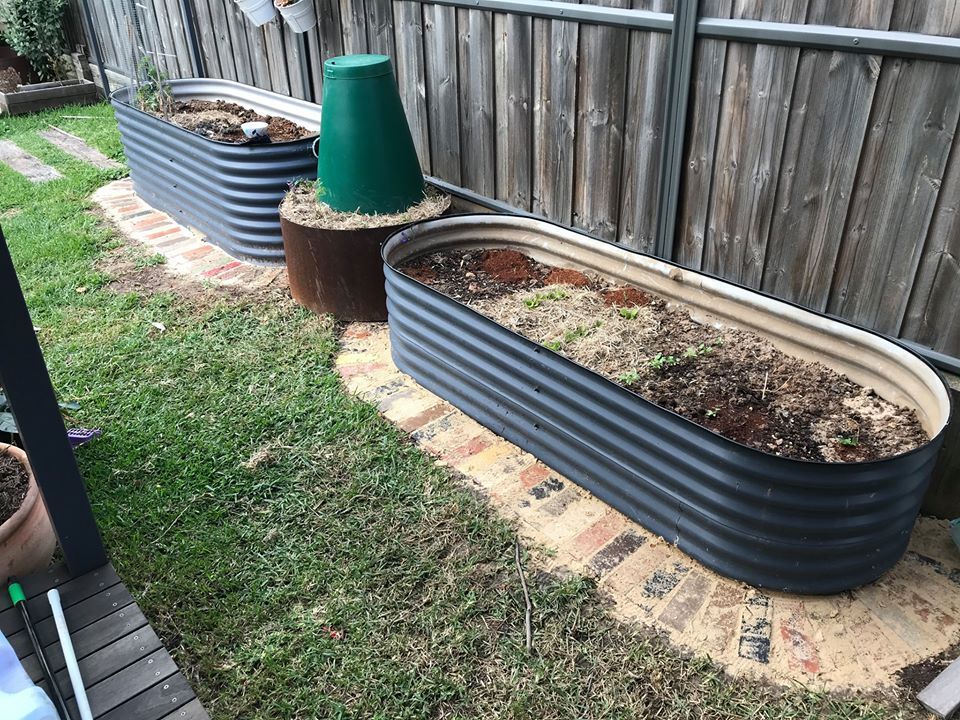No doubt about it, 2020 represented a difficult time for us here in Australia, and across the globe. But amid the environmental, health and political upheavals, we have seen tremendous growth here at the Compost Revolution.
Across the country, we were inspired to see over 15,500 households search for what they can do to support a healthier, happier and greener future. For many, this meant joining the fight against food waste. And, for a growing number, this also involved growing their own food - from window sills, balconies, backyards and beyond!
As a new Melbourne-based recruit shared, "during the lockdown, I thought I’d pick up gardening and learn to be more sustainable...it’s been the biggest learning adventure...and the best bonding activity for my family...It has really helped me through lockdown."
It has been a privilege to follow your journeys, thank you all for sharing them with us!

Like worm tea, it’s often most valuable to let things sit and allow the goodness to filter out; to pause and reflect on the year that was.
While the last 12 months could be defined in many ways, and not all good of course, we will remember 2020 as the year more households than ever before across Australia took the leap and joined the Revolution. To put this in perspective, this means that together, with over 64,627 households onboard as of writing, we are diverting on average 72 tonnes of food scraps from landfill every week - reducing CO2 emissions by around 180,000 CO2 equivalent per year (1,2). That's equivalent to taking 38,877 cars off the road!
Our annual survey also indicated that many households are getting out in the garden more, using compost to…
- Nurture local soils (3): Improving water absorption and carbon sequestration capacity; and
- Grow food (3): Improving urban biodiversity, providing natural habitat for our native fauna and flora, increasing neighbourhood resilience and looking after physical and mental well-being.
We have also found that for many households, composting provides the foundation for their war on waste. Since joining the Revolution...
- Over 50% of households have made a more active effort to avoid single use plastic (3); and
- Over 40% of households have made a more active effort to reduce food waste in the first place (3).
So what next? We’re gunning to recruit even more households this year – double last year in fact – and we need your help! Fact is, revolutions need leaders. With over 64,627 households across the nation, we're calling on you to help us share the art, science and sheer fun of composting. A chat over the backyard fence with a neighbour, a gift of compost or home grown veg, or even a quick social media post, all encourages and inspires your community to get involved.
We’re not only aiming to double the number of recruits this year, we’re literally going to focus on that next step after you nurture your garden - growing it! Growing food to sustain our families, growing more plants to cool our urban heat islands and growing our soil’s ability to sequester carbon and absorb water. We’re driven by a passion for creating greener, healthier, more resilient neighbourhoods – and it all starts with the soil.
So look out for some exciting new products and offers to get you into the garden for less cost, and for so much more goodness. Until then, keep your compost turning, Bokashi fermenting and worms wriggling and vive la révolution!
References:
(1) 2019 National Food Waste Baseline report and Compost Revolution Annual Survey (2019)
(2) Calculated using statistics provided by FAO ‘Food wastage footprint: Impacts on natural resources - Summary Report’ (2013)
(3) Compost Revolution Annual Survey (2020)


